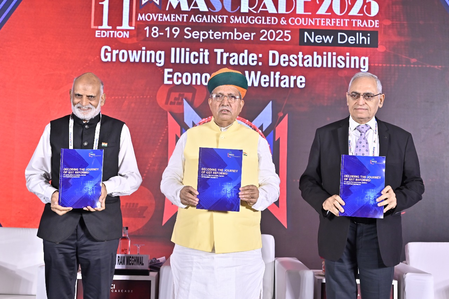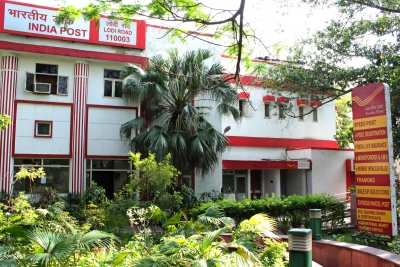
New Delhi, Sep 18 (IANS) The GST reforms will lead to a reduction in the trade of counterfeit goods in the country, FICCI CASCADE Chairman Anil Rajput said on Thursday.
Speaking to IANS at an event in the national capital, Rajput said, “FICCI CASCADE organises its annual flagship conference, MASCRADE, every year which is a movement against smuggling and counterfeiting activities.”
He further said that smuggling and counterfeit goods trade harm the economy and “we need to sensitise everyone involved — be it policymakers, industry, or consumers”.
When asked about GST 2.0, Rajput said that it is a transformative reform.
“One of the reasons for the trade of counterfeit goods is high taxes. Therefore, the government has reduced the taxes with the GST reform. This will help us reduce the trade of counterfeit goods in several sectors,” Rajput noted.
The GST 2.0 reforms will reduce household tax burdens, support MSMEs, and combat illicit trade.
According to a report by FICCI CASCADE and Thought Arbitrage Research Institute (TARI), the number of items taxed at 5 per cent rose from 54 categories under GST 1.0 to 149, reducing the effective GST incidence for rural families from 6.03 per cent to 4.27 per cent and for urban households from 6.38 per cent to 4.38 per cent.
For businesses, especially MSMEs, GST 2.0 introduces rationalised rates that address distortions caused by the inverted duty structure. Sectors critical for rural employment and manufacturing—such as tractors, farm machinery, fertilizers, textiles, handicrafts, auto components, and construction inputs—are now subject to lower, more rational rates, the report said.
This change unlocks blocked input tax credits, freeing up working capital and enhancing competitiveness. Digital-first compliance measures, including risk-based assessments, automated real-time refunds, and quicker dispute resolution through the newly established GST Appellate Tribunal (GSTAT) will aid formalisation of the economy.
The report said that moderating the standard slab to 18 per cent and shifting essentials to the 5 per cent bracket reduces price gaps that encourage smuggling and counterfeiting, thereby aiding in the formalisation of the economy.
Short-term revenue losses are anticipated, but the doubling of indirect tax collections and growth in taxpayers under GST 1.0 indicate potential long-term fiscal benefits, it noted.
Noting that the 40 per cent slab for demerit goods, particularly tobacco, risks perpetuating illicit markets, FICCI CASCADE urged that a balanced approach to demerit taxation is essential to disincentivise smuggling.
–IANS
abs/na




